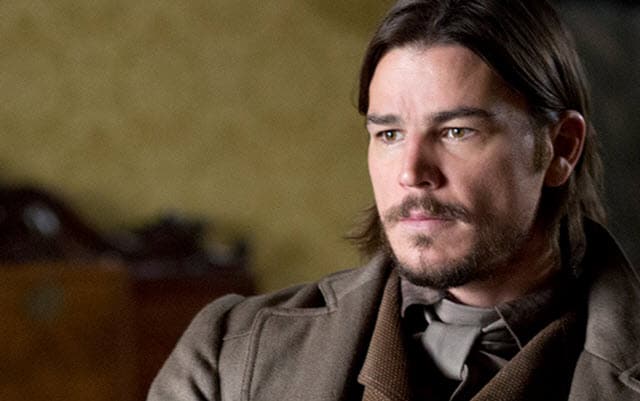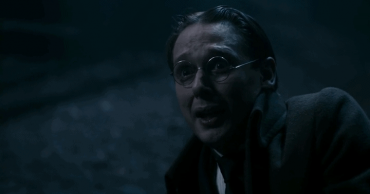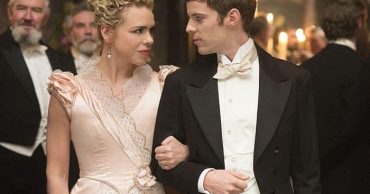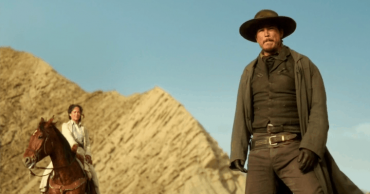
Even in its first two episodes, which focused heavily on introducing viewers into its version of London mainly through Sir Malcolm Murray and Vanessa Ives, Penny Dreadful crafted a beautiful portrayal of Victor Frankenstein–one that was able to steal the show from flashier sequences with other characters. “Resurrection” focuses further on Frankenstein’s role in this story, and the episode is a simply spectacular homage to Mary Shelley’s novel that gave the world such a timeless figure.
Like the novel, Frankenstein; or, The Modern Prometheus, “Resurrection” functions as a framed narrative and allows its creation (named Caliban, here) to tell his story. What this immediately does to surprising effect is subvert the impact of seeing Proteus killed at the end of last week’s episode. Here is an entity through which we saw the world anew; Proteus is/was someone entirely sympathetic. To see an innocent creature such as him murdered out of spiteful malice should firmly align us against Caliban. And maybe that’s still the case for many viewers; maybe Caliban’s story in “Resurrection” isn’t enough to excuse part of that act through understanding and/or empathy. However, the episodes gives way to that story, so it almost feels like understanding is a necessary component. I should hate Caliban for killing Proteus, but his circumstances complicate those feelings, just as they ought to in Shelley’s novel.
There is an incredible amount of nuance and attention to detail throughout these scenes and flashbacks. Caliban, of course, is The Tempest‘s monstrous figure in Shakespeare’s play. The wizard, Prospero, gives him his critical faculties, yet Caliban cannot subdue some of his more natural instincts. Penny Dreadful‘s Caliban is not dissimilar. He is mildly deformed and receives harsh criticism in response to that deformity. He learns how to live in the world, teaching himself language and emotion, but he will never fully be accepted even in the face of those who show him that there is kindness out there. His hatred for Victor for leaving him at his inception and most vulnerable state seems justified. So, too, does his request for an immortal companion. To kill his “brother” so dispassionately is a deplorable act to us, but it is his way to forcing Victor to feel and think about what he has felt and thought about during their separation.
In another version of Penny Dreadful that was 10 or 13 episodes instead of 8, “Resurrection” could be devoted entirely to this story and act as the show’s delightfully faithful (and appropriately different) adaptation of the source material. As is, the episode still stands out as another very strong entry in a young season for this horror show. How it integrates into the season more fully in seen through Victor’s comments to Malcolm about acknowledging responsibility for the changes one creates in another being. Malcolm does not understand what torturing his vampiric captive does in the larger sense of affecting life. Frankenstein understands this all too well, and he is right to warn Malcolm.
It actually isn’t until that final sequence where the main cast comes together that I felt like Ethan Chandler deserved to be in this episode at all. However, John Logan finds the obvious and effective way of tying him back to Ives and Murray when Brona mentions that she can’t afford the medical treatment she needs. Money is the superficial thing that sends him back to that house and in the employment of the supernatural tracker-hunters. And Vanessa is the non-superficial anchor, since there is a budding connection between the two. Malcolm warns Chandler at the zoo that Vanessa can become irresistible in certain states, but it doesn’t really look like Logan is writing that relationship as one possessing romantic qualities. Vanessa is more tied to Dorian in that regard, and Chandler to Brona. That the Malcolm-Vanessa relationship is also devoid of a sexual attraction means that the three (or four, including Victor) central characters are ones who do not have a typical television-y connection to each other. Even in genre series such as these, it’s far too easy to pair up characters in weak plots like that, so I certainly appreciate each of these four having interests and motivations outside of that aspect.
That zoo scene, to get back to it, also makes Chandler’s character more compelling in his scene with the wolves. It’s still too early to fully understand how he fits into this crew of misfits, but he appears to have some sort of power that hasn’t been outright explained and which Vanessa and Malcolm can only look confusedly at each other about. The audience, too, can’t help but have that “…whhhaaattt?” expression as Chandler bends down and lets the wolf clamp its teeth around his fingers. John Hartnett has made Chandler’s mystique completely believable without it being annoying, and this is a standout moment for him in terms of fitting into the unusual and evocative tone of Penny Dreadful.
The other aspect of “Resurrection” worth mentioning is how it properly ends–the captive calling out to his master, which we have to presume is Dracula, given the captive’s bloodlust and that Malcolm’s daughter is named Mina (maiden name Murray in Bram Stoker’s novel). This is the kind of cliffhanger I can easily get on-board with, because holding off on showing us Penny Dreadful‘s Dracula works really well at building him up as this season’s Big Bad (or, perhaps, the main antagonist for the entire series, however long it runs). He is probably the most alluring figure from this period of Gothic literature–at least based on the adaptations that exist–and that we already know who he is, again, makes that prolonged reveal less annoying and more something to look forward to.
[Photo via Showtime]
 Follow Us
Follow Us





